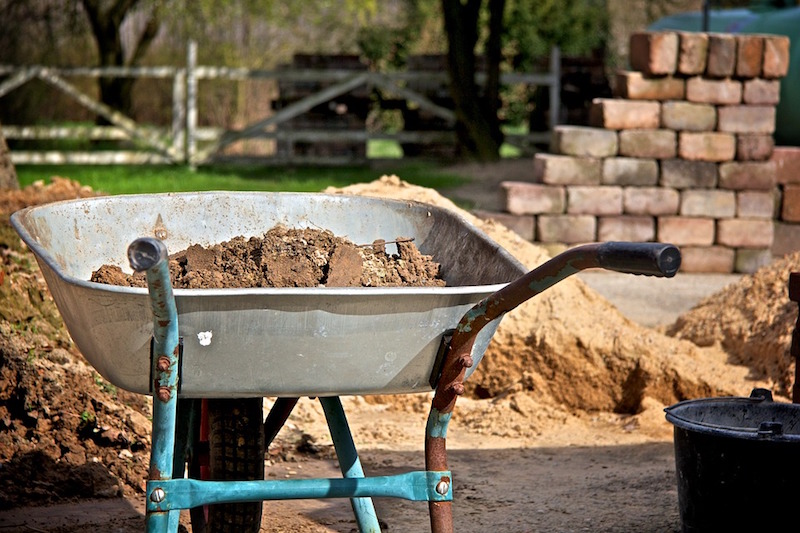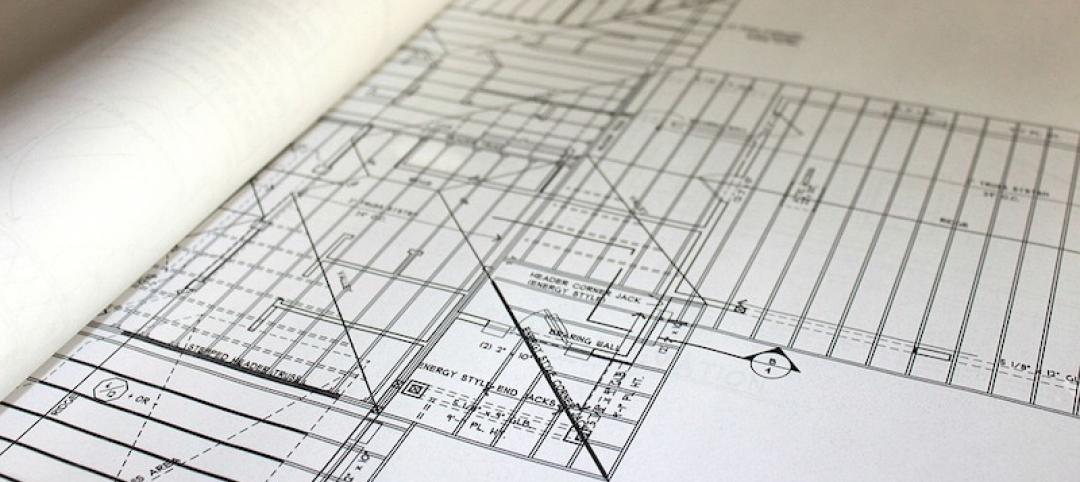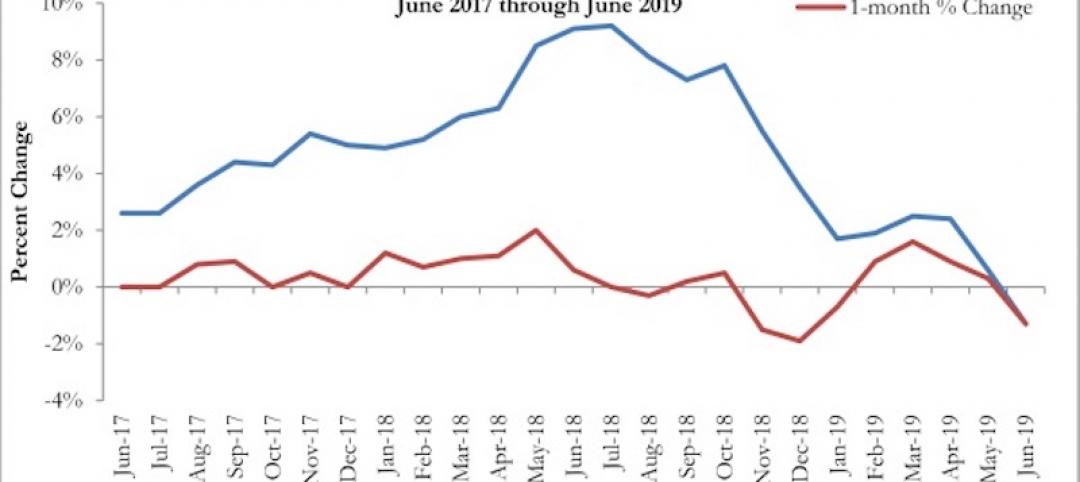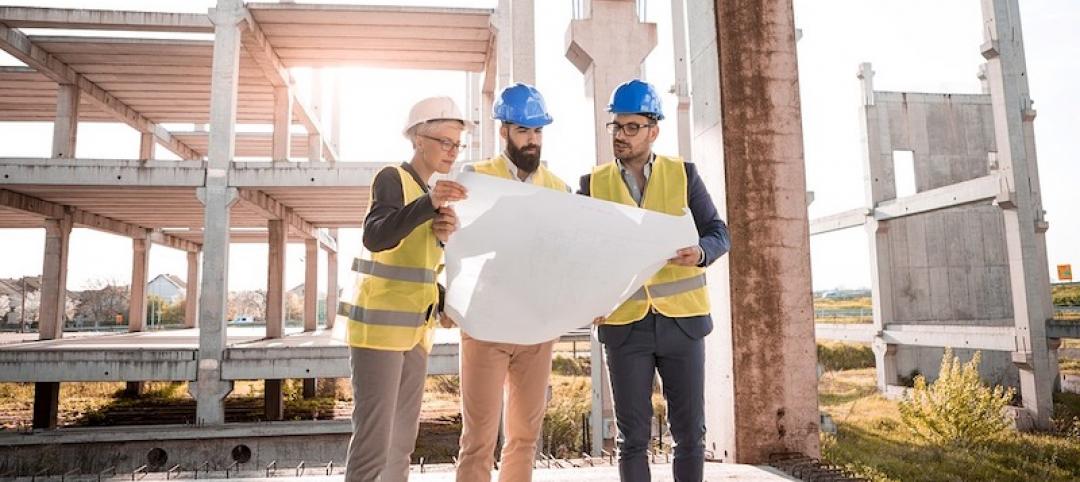Construction employment increased by 228,000 jobs over the past year despite a weather-related dip last month, and the industry's unemployment rate fell to 7.4%, the lowest yet for March, according to an analysis of new government data by the Associated General Contractors of America. Association officials called for revitalizing and adequately funding career and technical education and training programs to ensure that employment in the high-paying industry would continue to grow.
"Construction employment indicators are still signaling strong demand on an annual basis, even though unusually bad weather in several regions probably depressed hiring in March," said Ken Simonson, the association's chief economist. "Employment is rising twice as fast as for the overall economy, pay rates and growth are outpacing the private sector as a whole, and the industry's unemployment rate was the lowest ever for March."
Construction employment totaled 7,150,000 in March, a dip of 15,000 for the month but an increase of 228,000, or 3.3%, over 12 months. The economist pointed out that the year-over-year growth rate in industry jobs was more than double the 1.5% rise in total nonfarm payroll employment.
Hourly earnings in the industry averaged $29.43 in March, a rise of 2.9% from a year earlier. That put average pay in construction 9.7% higher than the average for all nonfarm private-sector jobs, which rose 2.7% in the past year, to $26.82, the economist noted.
The unemployment rate in construction dropped from 8.4% a year earlier to 7.4% last month—the lowest March rate since the series began in 2000. The number of unemployed job seekers with recent construction experience declined to 696,000 in March 2018, which was the lowest total for March since 2001, Simonson said.
Residential construction—comprising residential building and specialty trade contractors—shrank by 7,000 jobs in March but added 114,200 jobs, or 4.3%, over the past 12 months. Nonresidential construction (building, specialty trades, and heavy and civil engineering construction) employment also increased by 114,200, or 2.7%, over 12 months, despite a drop of 8,200 jobs in March.
Construction officials said the new employment figures show the industry continues to create high-paying, long-term jobs but that there is a critical need for more workers. They urged officials at all levels of government to re-invigorate and adequately fund career and technical education programs.
"Construction offers great careers, with above-average pay both for entry-level workers and for the industry as a whole compared to the private-sector average," said Stephen E. Sandherr, the association's chief executive officer. "To make sure students and workers displaced from other jobs have the chance to gain the skills needed to succeed in growing sectors like construction, government officials must do their part. That means funding up-to-date career and technical education and training, and allowing the industry to collaborate in providing opportunities."
Related Stories
Market Data | Jul 20, 2019
Construction costs continued to rise in second quarter
Labor availability is a big factor in that inflation, according to Rider Levett Bucknall report.
Market Data | Jul 18, 2019
Construction contractors remain confident as summer begins
Contractors were slightly less upbeat regarding profit margins and staffing levels compared to April.
Market Data | Jul 17, 2019
Design services demand stalled in June
Project inquiry gains hit a 10-year low.
Market Data | Jul 16, 2019
ABC’s Construction Backlog Indicator increases modestly in May
The Construction Backlog Indicator expanded to 8.9 months in May 2019.
K-12 Schools | Jul 15, 2019
Summer assignments: 2019 K-12 school construction costs
Using RSMeans data from Gordian, here are the most recent costs per square foot for K-12 school buildings in 10 cities across the U.S.
Market Data | Jul 12, 2019
Construction input prices plummet in June
This is the first time in nearly three years that input prices have fallen on a year-over-year basis.
Market Data | Jul 1, 2019
Nonresidential construction spending slips modestly in May
Among the 16 nonresidential construction spending categories tracked by the Census Bureau, five experienced increases in monthly spending.
Market Data | Jul 1, 2019
Almost 60% of the U.S. construction project pipeline value is concentrated in 10 major states
With a total of 1,302 projects worth $524.6 billion, California has both the largest number and value of projects in the U.S. construction project pipeline.
Market Data | Jun 21, 2019
Architecture billings remain flat
AIA’s Architecture Billings Index (ABI) score for May showed a small increase in design services at 50.2.
Market Data | Jun 19, 2019
Number of U.S. architects continues to rise
New data from NCARB reveals that the number of architects continues to increase.

















